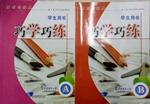题目内容
【题目】阅读下面材料,在空白处填入适当的内容或括号内单词的正确形式。
Dinosaurs died out because of 【1】 unexpected incident. But wildlife today disappears or is 【2】 danger just because humans do harm to it. For example, tigers 【3】(hunt) for fur to make carpets so that they can only live in secure reserves; grassland is destroyed without mercy so that dust storms come into being, 【4】 affect distant cities.
Last year, scientists 【5】(see) some monkeys rubbing themselves with a certain kind of insects to protect themselves from fierce 【6】(mosquito). According to the result of the inspection, they found that the insect contains a 【7】(use) drug, so local farmers were employed to catch the insects. The ending was that the insects disappeared 【8】 (gradual) from the whole zone.
We should appreciate the natural balance and pay more attention to the 【9】 (important) of wildlife protection. Not until we succeed in 【10】 (make) wildlife live in peace can we smile in relief.
【答案】
【1】an
【2】in
【3】are hunt
【4】which
【5】saw
【6】mosquitoes/mosquitos
【7】useful
【8】gradually
【9】importance
【10】making
【解析】
这是一篇说明文。文章介绍了人类对野生动物的伤害及动物对他们对我们的影响。
【1】考查冠词。设空是修饰后面的名词,用冠词,根据unexpected可知,用冠词an。故填an。
【2】考查介词。in danger是固定短语,意思是“处于危险中”。故填in。
【3】考查语态。主语tigers与动词hunt之间是被动关系,用be done形式,讲述的是客观事实,用一般现在时的被动语态are done。故填are hunted。
【4】考查定语从句。句意:草原被无情地破坏,以致沙尘暴产生,遥远的城市受到影响。这是个非限制性定语从句,关系词指代的是整个主句的内容,从句缺少主语,用which引导。故填which。
【5】考查时态。根据时间状语last year可知,用一般过去式。故填saw。
【6】考查名词。句意:去年,科学家们发现一些猴子用某种昆虫摩擦身体来保护自己免受蚊子的叮咬。根据句意可知,此处的mosquito用复数形式。故填mosquitoes/mosquitos。
【7】考查形容词。设空处所给词是名词,空后是名词drug,用形容词修饰,因此用use的形容词。故填useful。
【8】考查副词。分析句式可知,设空处是修饰动词disappeared,用副词修饰动词。故填gradually。
【9】考查名词。根据空前的the和空后的of可知,此处符合结构the加名词加of结构,故填importance。
【10】考查非谓语动词。succeed in doing sth成功的做了某事,这是个固定用法。故填making。
时态是常考考点,除了要求考生掌握各个时态的基本用法之外,考生需具有在具体语境中辨别能力。时态的判定往往根据句中所给的直接或间接的时间状语来判定,但要注意的是不能完全依赖于所给出的时间状语,还要看语境。本题的第5小题考查的是时态,本题中有个很明显的时间状语last year,因此用一般过去式。

 巧学巧练系列答案
巧学巧练系列答案